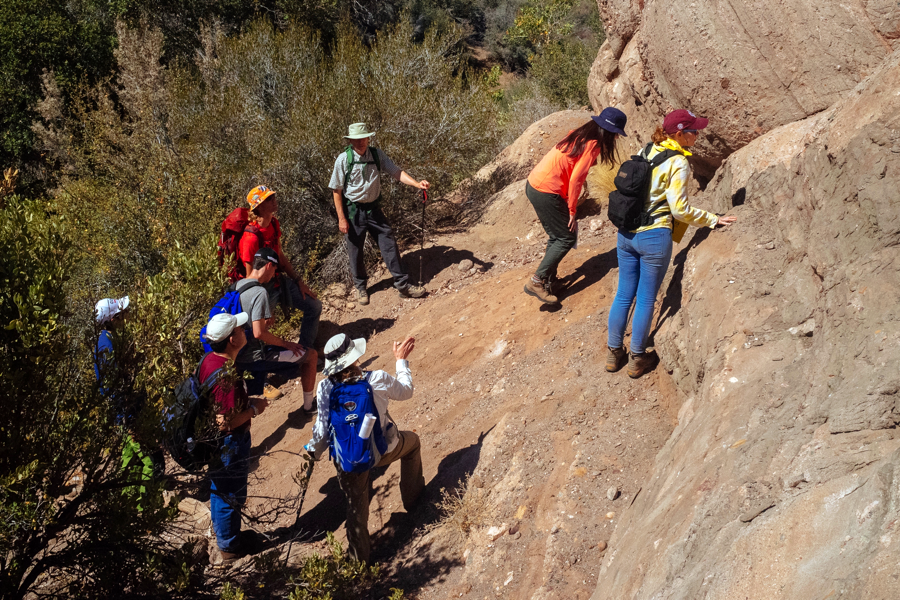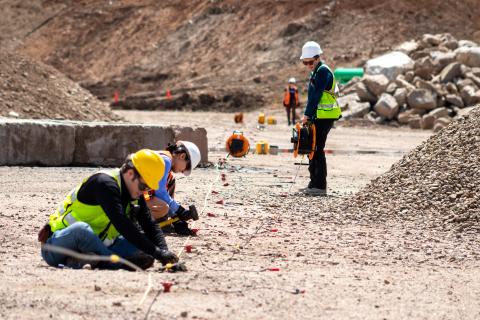All Categories
Featured
Table of Contents
Geophysical Survey in Beckenham Oz 2020
This work is increasingly contracted out, so consultancies offer another source of work. Consultancy firms vary in size, from extremely small business to big multinationals. Some consultancies are quite specialised in using particular geophysical methods or operating in specific places, while others offer a more diverse series of services to their consumers.
The extraction of gas from land fill websites is another area of employment and this might grow in the future. Exploration companies might undertake work for building and construction companies, water companies, mining companies and environmental companies, so geophysicists might be employed in any of these settings. Other employers include: geological surveysgovernment bodies and agenciesuniversities and research study institutes.


Vacancies may be listed in the oil and gas sector press. Recruitment is impacted by oil cost variations and the level of competitors for positions differs depending upon this. Professions Days, which cover the complete variety of geoscience professions and are normally attended by a variety of essential industry companies, are run by The Geological Society.
Geophysicist: Job Description, Duties And Requirements in Piesse Brook Aus 2020
Some of the big oil and gas companies use a full two-year structured training programme across the breadth of geophysics, consisting of the opportunity to experience work in various teams prior to specialising in one location. Your training might include work on: existing wellsmagnetic and gravitational possible field information analysisresearchrock analysis. It's more normal for your initial training to be offered on the task.

There may be a probationary duration during which you work together with an experienced coworker. Competency-based appraisals take place regularly in many firms. In smaller firms, and for academic posts, there is unlikely to be any official training - you'll be expected to begin work straightaway and choose up skills as you go along.
If you work for a smaller business, you might discover that you require to take responsibility for organizing and moneying your own advancement and training. If you have a geology degree, subscription of The Geological Society can be useful for networking and for keeping up to date with the industry.
What Is The Difference Between Geophysical Method And ... in Mariginup Aus 2020
You may likewise discover it helpful to sign up with the PESGB (The Petroleum Expedition Society of Great Britain, which has a geophysics special interest group. After a probationary period, and as soon as you've acquired some experience, you might advance to senior geophysicist, then team leader and then into a senior function in management.
The ease of movement between functions depends upon the company structure. Study at Masters or Ph, D level in a subject related to geophysics or geosciences might assist with your profession advancement and development. The work market within the oil and gas market is extremely dependent on price and this might impact your chances for career development.
Not all jobs are dependent on the oil and gas industries. For knowledgeable geophysicists, freelance consultancy uses a good path for career advancement. You can also specialise in a specific location of geophysics. As a geophysicist, you're likely to have several tasks throughout your working life. Worldwide movement is essential for handling peaks and troughs in different countries at various times.
Recent Advances In Optimized Geophysical Survey Design in Padbury Aus 2021
From geophysics, it's possible to concentrate on seismology (finishing further training to become a seismic interpreter) or to move into related locations such as engineering geology or threat forecast.
Deciding what to study in college is a difficult choice. Even if you understand that your field of interest lies in science, what program of study is right for you? If you make the decision to significant in physical and biological sciences and pursue a profession as a geophysicist, you're getting ready for an interesting and successful profession.
The first step to achieving your objective of ending up being a geophysicist is making a degree. Even for entry-level positions in the field of geoscience, you'll require a bachelor's degree (a geophysicist college degree) from a recognized college or university. Some research positions need candidates to hold master's degrees or even Ph.
Geophysical Survey: Plotting Buried Traces Of Human Activity in Quinns Rocks Australia 2020
Doctoral degrees are particularly crucial if you prepare to teach at a four-year organization. Geophysicists use physics concepts and strategies to study the gravitational, magnetic, and electric fields of the earth. This enhances researchers' knowledge of both the planet's interior core and its surface. Geophysicists must be able to: analyze rocks, photographs, and other pieces of data carry out research study both in the field and in laboratories develop maps and charts of their findings compose reports To achieve all this, trainees need a specialized education for geophysicist careers.
As stated above, you'll require a bachelor's degree in geoscience or a related discipline, such as a physical science or a life sciences, to land an entry-level task. However trainees can also prepare by majoring in topics like: Biology Chemistry Computer science Engineering Mathematics Physics The above geophysicist majors offer a more generalized technique to a single clinical discipline, however a lot of programs need students to take several geology course.
Latest Posts
Geophysical Survey Methods in Western Australia 2021
Geophysicist Salary in Wembley Downs Aus 2021
Bsc Geophysics in Safety Bay WA 2023